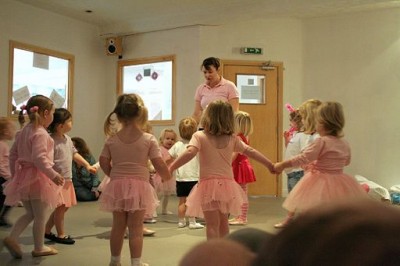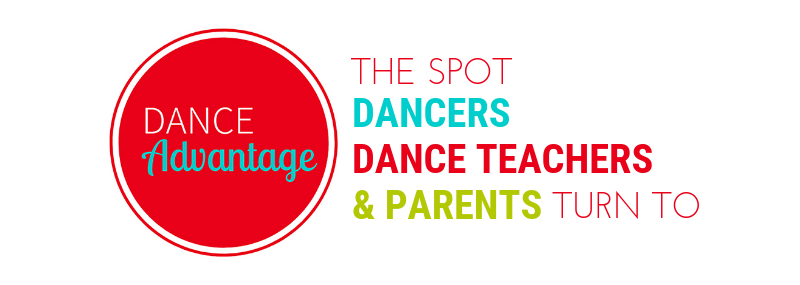As you watch your child through the observation window at dance class, you cringe. The other kids are attentive and having fun but your three-year-old is all over the place. She’s making silly faces in the mirror, the teacher says her name three times before she gets up for her turn across the floor, she looks completely disinterested and is even disruptive at times. What is going on? She looks forward to dance class all week but then she gets there and doesn’t pay attention. It’s a little embarrassing and you want more than anything to open the door and give her that stern “behave” look but instead you’re reconsidering this whole ballet thing.

If any or all of the above sounds familiar, you probably have some questions. Here are a few from other parents just like you.
My child is not listening to the teacher.
Is this a developmental phase?
All children test limits and this is not limited to preschoolers – How do you know where a boundary is and feel secure that it will always be there if you do not occasionally walk to the edge of it?
Teachers and parents help children by making boundaries and expectations clear (often before the child has a chance to test them).
When your child resists or pushes boundaries often, even when limits are clear and consistent, a wide variety of things could be interfering with your child’s ability to respond accordingly. If you’re concerned I suggest you request an appointment with the child’s teacher to discuss what he/she is seeing in class. Ask if your teacher has a few moments before or after the next class or if there’s another time that’s best.
If the teacher is not yet as concerned as you are, it may be because s/he sees your child’s behavior within the range of what’s expected at this age. Trust the teacher to let you know when the behavior requires some intervention. At this point it is important for teachers and parent(s) to communicate and work together on possible solutions.
Is a preschooler (under 5-years old) too young to be expected to listen?
Absolutely not – in fact, learning to listen and follow instructions in a class environment is the main benefit of an early start in dance. Little bodies and minds aren’t quite developmentally ready for learning dance technique until around the age of 7. Even dance “steps” aren’t as important in the preschool years as learning to cooperate, explore movement, and of course, have fun!
I don’t believe I’ve ever met a child that did not enjoy moving. They even enjoy learning the principles of movement (which sounds fancy, but is really just concepts like fast and slow, strong and light, etc.) when it is presented in a way that’s developmentally appropriate (i.e. fun and playful!).
What can I do if my child isn’t following directions in dance class?
Is there anything you can do as a parent to encourage your child to make appropriate choices in their preschool dance class. Sure!
- Keep your routine at home as predictable and peaceful as possible. Make sure your child is getting enough sleep, eating well, and try to relieve any stress or anxiety he/she may have at home or in class. Consider: Is this a new dance teacher from last year? Is there conflict between your child and another? Has the class environment intensified in some way? Sometimes even small or unexpected things can affect a child’s attention and behavior.
- Be clear and consistent with expectations at home and compare these to the class expectations. Of course, your style at home and the way your child’s teacher runs his/her class will not be identical. However, if the rules/guidelines at home or within the studio are not aligned, your child may be confused about why the expectations vary from place to place. You can create some consistency by examining with an open mind the differences between dance class and home. For example: If a child is expected to not interrupt the teacher while talking gently remind your student at home to be patient when they see you speaking on the phone or with a friend.
- Help your child establish a good relationship with his/her teacher.On her website, Dr. Laura Markham says to include your child’s teacher in daily conversation in a way that will help your child form an emotional and familiar attachment with him/her. Click here to read the article, which also includes other ways you can help your preschooler to listen to a teacher.
Look for the continuation of this article in which I discuss class structure for young dance students and how certain experiences may discourage your child’s attentiveness in class.
Nichelle Suzanne is a writer specializing in dance and online content. She is also a dance instructor with over 20 years experience teaching in dance studios, community programs, and colleges. She began Dance Advantage in 2008, equipped with a passion for movement education and an intuitive sense that a blog could bring dancers together. As a Houston-based dance writer, Nichelle covers dance performance for Dance Source Houston, Arts+Culture Texas, and other publications. She is a leader in social media within the dance community and has presented on blogging for dance organizations, including Dance/USA. Nichelle provides web consulting and writing services for dancers, dance schools and studios, and those beyond the dance world. Read Nichelle’s posts.

